
The Timeless Allure of Caesarea Port
Caesarea Port, nestled on the sun-kissed coast of Israel, is a seamless blend of ancient history and modern luxury. This unique neighbourhood offers a captivating glimpse into the past, with its well-preserved Roman-era ruins, including a grand amphitheater and aqueduct, standing proudly against the backdrop of the Mediterranean Sea. As you stroll through the archaeological park, you'll find yourself transported back to a time when Caesarea was a bustling hub of trade and culture. Beyond its historical treasures, Caesarea Port boasts a vibrant marina that is perfect for a leisurely day by the water. Luxury yachts dot the harbor, and chic cafes and restaurants line the waterfront, offering a delightful array of culinary experiences. From fresh seafood to traditional Israeli dishes, there's something to satisfy every palate. Don't miss the chance to dine with a view, as the sunsets over the Mediterranean are nothing short of spectacular. For those seeking adventure, Caesarea Port offers a variety of water sports and activities. Whether it's snorkeling among the submerged ruins or taking a boat tour to explore the coastline, there's plenty to do for the active traveler. The surrounding natural beauty also provides ample opportunities for hiking and bird-watching, making Caesarea Port a well-rounded destination for all types of tourists.
Local tips in Caesarea Port
- Visit early in the morning to avoid crowds and enjoy the serene beauty of the archaeological sites.
- Wear comfortable walking shoes, as the terrain around the ruins can be uneven.
- Book a guided tour to gain deeper insights into the rich history of Caesarea Port.
- Try the local seafood at the waterfront restaurants for a truly authentic dining experience.
- Bring sunscreen and a hat, especially during the summer months, as there is little shade around the ruins.
The Timeless Allure of Caesarea Port
Caesarea Port, nestled on the sun-kissed coast of Israel, is a seamless blend of ancient history and modern luxury. This unique neighbourhood offers a captivating glimpse into the past, with its well-preserved Roman-era ruins, including a grand amphitheater and aqueduct, standing proudly against the backdrop of the Mediterranean Sea. As you stroll through the archaeological park, you'll find yourself transported back to a time when Caesarea was a bustling hub of trade and culture. Beyond its historical treasures, Caesarea Port boasts a vibrant marina that is perfect for a leisurely day by the water. Luxury yachts dot the harbor, and chic cafes and restaurants line the waterfront, offering a delightful array of culinary experiences. From fresh seafood to traditional Israeli dishes, there's something to satisfy every palate. Don't miss the chance to dine with a view, as the sunsets over the Mediterranean are nothing short of spectacular. For those seeking adventure, Caesarea Port offers a variety of water sports and activities. Whether it's snorkeling among the submerged ruins or taking a boat tour to explore the coastline, there's plenty to do for the active traveler. The surrounding natural beauty also provides ample opportunities for hiking and bird-watching, making Caesarea Port a well-rounded destination for all types of tourists.
Iconic landmarks you can’t miss
Caesarea National Park
Explore the captivating blend of ancient history and breathtaking nature at Caesarea National Park, a must-visit destination for every traveler in Israel.
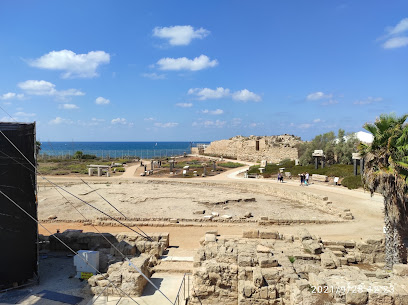
Caesarea Amphitheater
Explore the grandeur of the Caesarea Amphitheater, an ancient Roman marvel overlooking the Mediterranean, rich in history and breathtaking views.
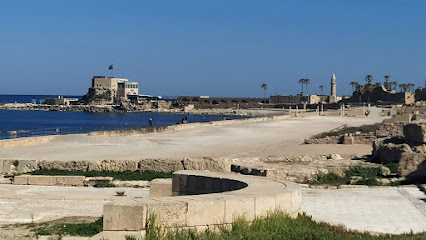
Caesarea Harbor
Discover the enchanting Caesarea Harbor, where history meets the Mediterranean coast, offering stunning ruins, scenic views, and cultural experiences.
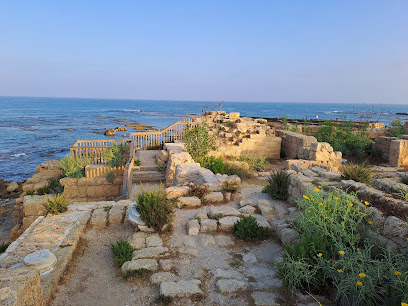
Roman Aqueduct
Explore the stunning Roman Aqueduct in Caesarea, an architectural marvel offering breathtaking views and a glimpse into ancient engineering excellence.
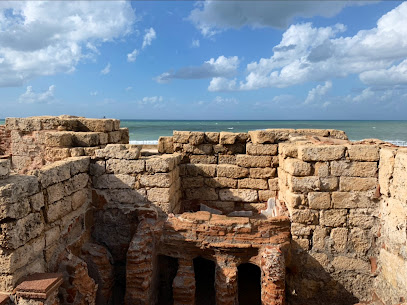
חוף עתיקות - נמל קיסריה
Discover the enchanting beauty of Caesarea Beach, where history meets the Mediterranean Sea in a perfect blend of relaxation and exploration.
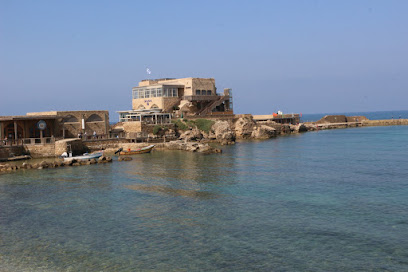
Caesarea Columns
Discover the historical significance and breathtaking architecture of the Caesarea Columns in Sdot Yam, a remarkable testament to ancient civilization.
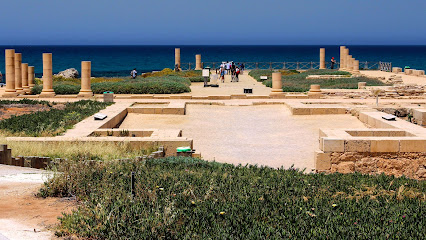
נמל קיסריה העתיק
Explore the ancient wonders of Caesarea, a historical landmark rich in heritage, stunning views, and captivating archaeological treasures along the Mediterranean coast.
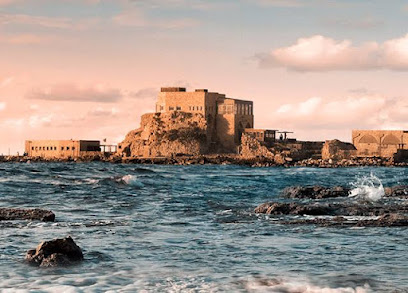
Old City Caesarea Gallery
Explore the artistic heart of Caesarea at the Old City Caesarea Gallery, a vibrant space showcasing local talent and cultural heritage through stunning works of art.
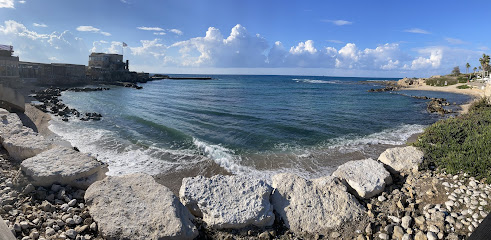
מרכז מבקרים נמל קיסריה
Discover the ancient marvels of Caesarea, from breathtaking ruins to stunning coastal views, a perfect blend of history and relaxation awaits.
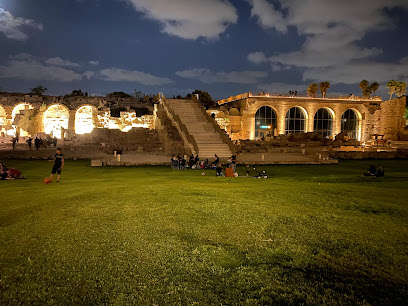
Caesarea Obelisk
Discover the ancient glory of the Caesarea Obelisk, a historical landmark showcasing the rich heritage of Israel's coastal city.
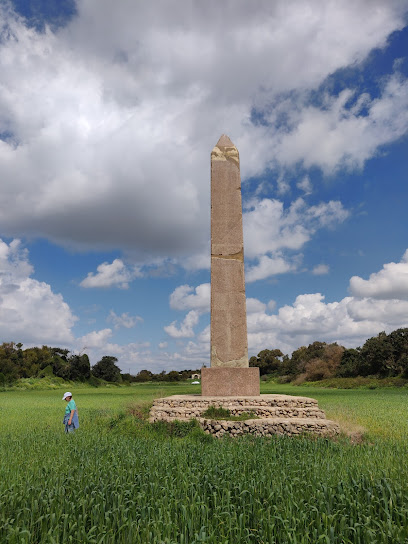
Unmissable attractions to see
Ralli Museum, Caesarea
Explore the captivating world of Latin American art at Ralli Museum in Caesarea, a cultural gem along Israel's beautiful coastline.
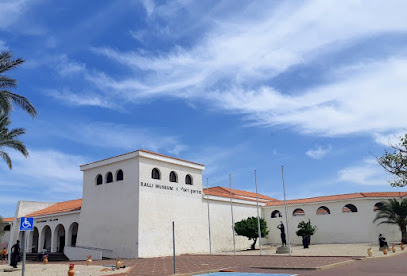
גן לאומי - נמל קיסריה
Explore the rich history and stunning landscapes of Caesarea National Park, an iconic destination on Israel's Mediterranean coast.
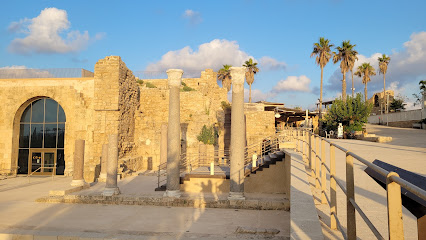
Quarry park
Explore the enchanting Quarry Park in Caesarea, where history meets nature amidst scenic landscapes and family-friendly activities.
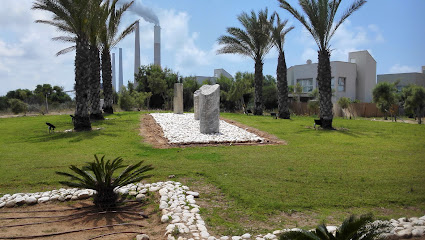
Essential places to dine
אג'נדה Agenda מסעדה בקיסריה
Experience exquisite Italian and sushi dishes at Agenda Restaurant in Caesarea – where every meal is a celebration of flavor.
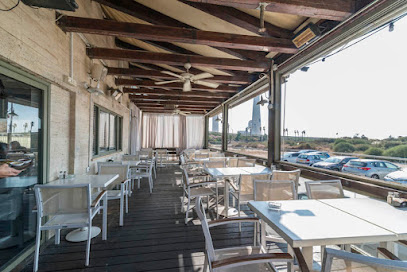
Aresto
Experience exquisite kosher Italian cuisine at Aresto in Caesarea – where delightful flavors meet stunning Mediterranean views.
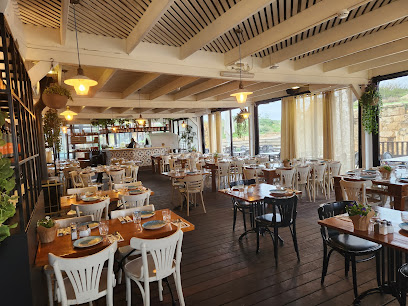
Shabtai Caesarea
Discover the culinary delight of Shabtai Caesarea - where artisanal pizzas meet vibrant atmosphere in the heart of Israel's historic coastal city.
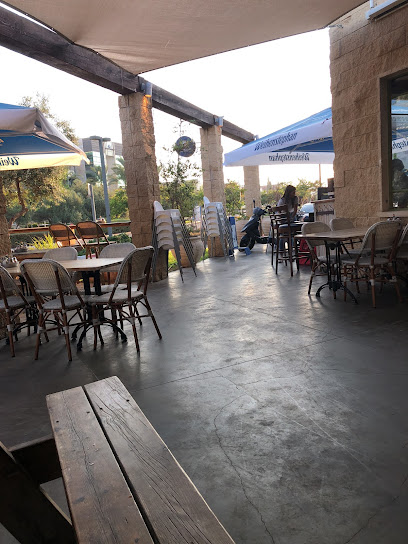
Mariposa
Experience exquisite Mediterranean dining at Mariposa in Caesarea, where fresh ingredients meet stunning coastal views.
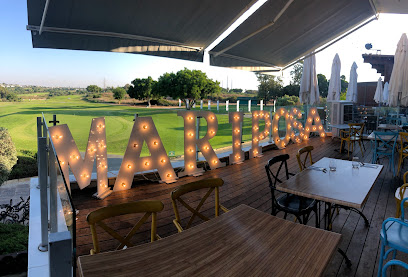
Port Cafe
Discover Port Cafe in Caesarea: A delightful kosher dining experience with stunning views of the Mediterranean Sea.
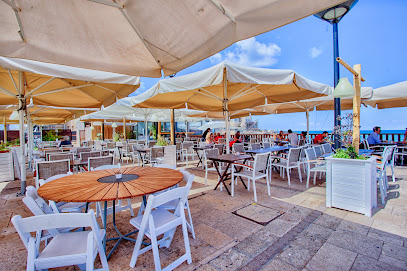
The Crusaders Restaurant
Discover exquisite kosher cuisine with breathtaking views at The Crusaders Restaurant in historic Caesarea.
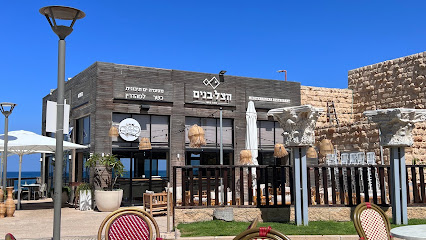
Hellena Restaurant Caesarea Harbor
Experience exquisite Mediterranean flavors at Hellena Restaurant in scenic Caesarea Harbor.
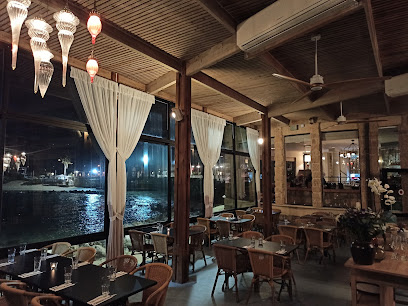
ג'מס קיסריה
Experience vibrant Israeli cuisine at Jems Caesarea—where fresh ingredients meet unforgettable flavors in a stunning coastal setting.
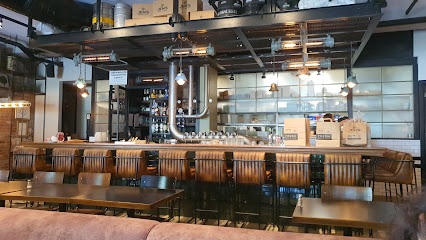
Limani Bistro
Experience exquisite Mediterranean cuisine at Limani Bistro in Caesarea - where fresh seafood meets stunning harbor views.
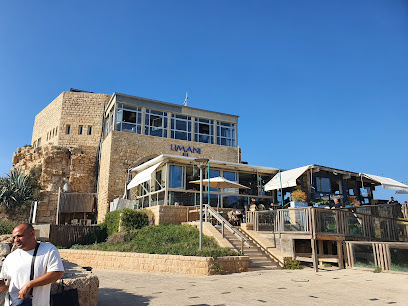
טונה קוקה | Tona Koka- מסעדת שף בקיסריה
Experience exquisite kosher dining at Tona Koka in Caesarea - where culinary innovation meets Mediterranean flavors.
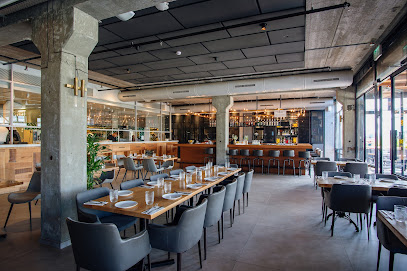
Markets, malls and hidden boutiques
C Center
Discover C Center in Caesarea, a vibrant shopping mall offering diverse retail, dining, and entertainment options for an unforgettable experience.
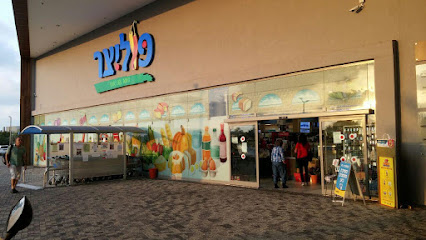
New Star
Discover the best sporting goods and gear at New Star in Caesarea, your ultimate destination for sports enthusiasts and outdoor adventurers.
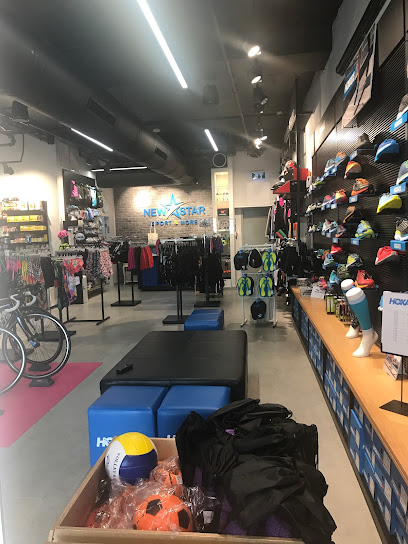
Caesarea Glass זכוכית קיסריה
Discover the beauty of stained glass art at Caesarea Glass Studio, where craftsmanship and creativity blend in the heart of ancient Caesarea.
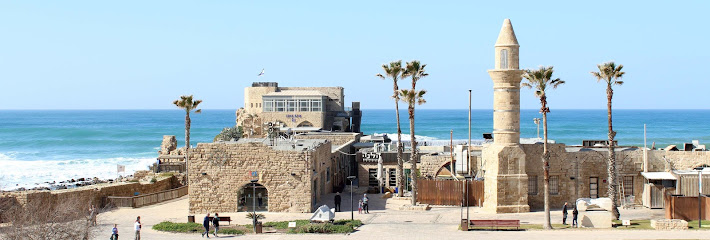
Draydel house
Discover Draydel House in Caesarea – a unique shopping destination blending local craftsmanship with the rich history of the ancient amphitheater.
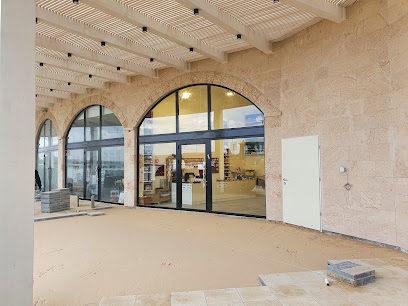
Rachel Arbel Roman Glass
Explore the beauty of handcrafted Roman glass jewelry in Caesarea, where history and artistry unite in stunning creations.
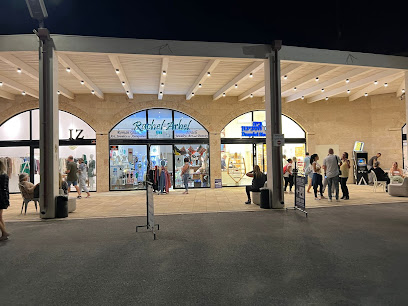
שאפה - חנות לדברים מיוחדים בקיסריה
Explore Shaffa Store in Caesarea for unique treasures that capture the essence of local culture and artistry.
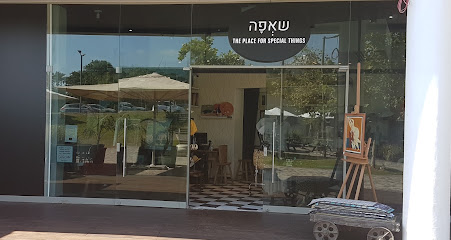
ג.ר.א.ס קיסריה
Explore ג.ר.א.ס קיסריה, the perfect destination for handcrafted jewelry reflecting the beauty and history of Caesarea.
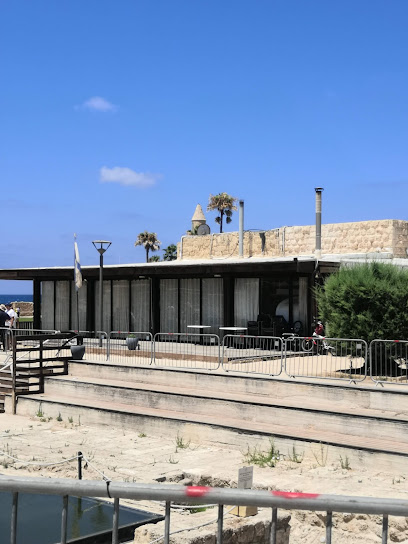
בית היין קיסריה
Discover the finest selection of wines at בית היין קיסריה, located in the beautiful Caesarea Harbor - a haven for wine lovers.
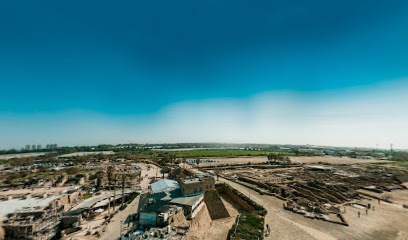
SHAFFA שאפה
Explore SHAFFA in Caesarea for unique fashion accessories that celebrate local craftsmanship and style.
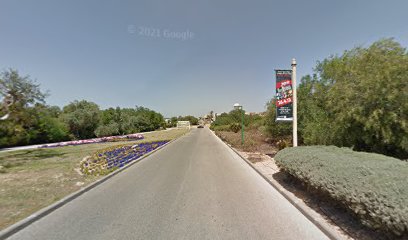
Minnie Mart
Discover the perfect blend of coffee, relaxation, and history at Minnie Mart in the heart of Caesarea.
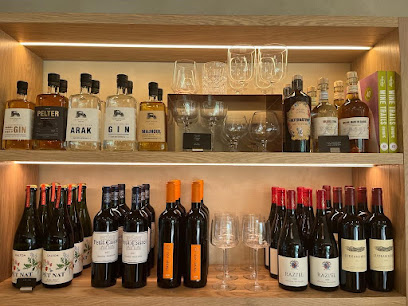
Essential bars & hidden hideouts
Aresto
Discover Aresto, a kosher Italian restaurant in Caesarea, where breathtaking views and exquisite cuisine come together for an unforgettable dining experience.
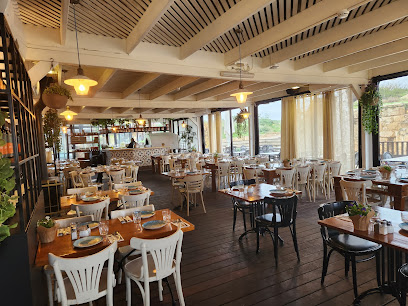
Shabtai Caesarea
Discover the vibrant atmosphere and delicious pizza at Shabtai Caesarea, where every bite is a celebration of flavor and hospitality.
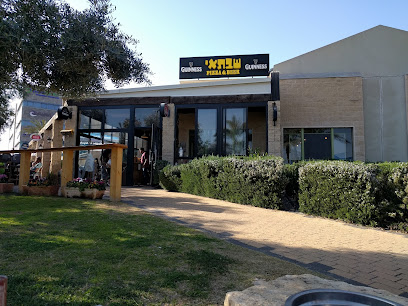
Mariposa
Experience the culinary artistry of Mariposa, a premier restaurant in Caesarea offering exquisite Mediterranean dishes and stunning sea views.
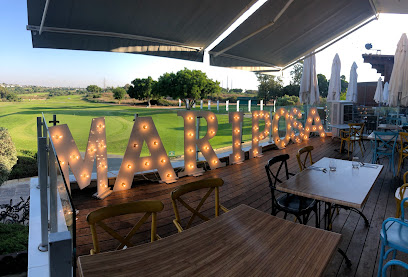
Port Cafe
Experience the best of kosher dining at Port Cafe in Caesarea, where exquisite flavors meet breathtaking historical views.
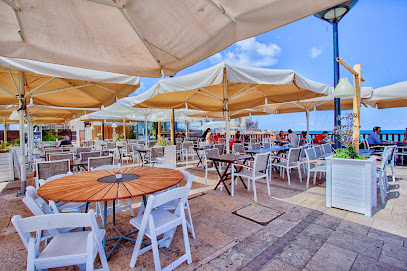
The Crusaders Restaurant
Experience the perfect blend of kosher and Israeli cuisine in the historic heart of Caesarea, where every meal tells a story.
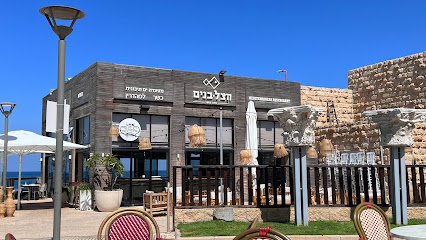
Hellena Restaurant Caesarea Harbor
Experience exquisite Mediterranean cuisine with stunning sea views at Hellena Restaurant in Caesarea Harbor, a must-visit for every tourist.
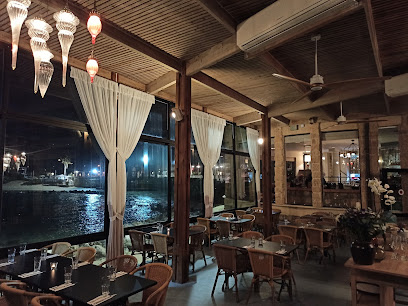
ג'מס קיסריה
Experience the vibrant flavors of Israel at Jems Caesarea, where modern cuisine meets historical ambiance.
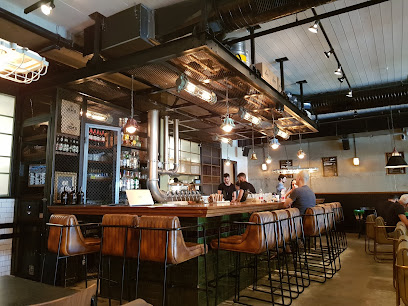
Beach Bar נמל קיסריה
Experience the vibrant coastal atmosphere at Beach Bar נמל קיסריה, where refreshing drinks meet stunning Mediterranean views.
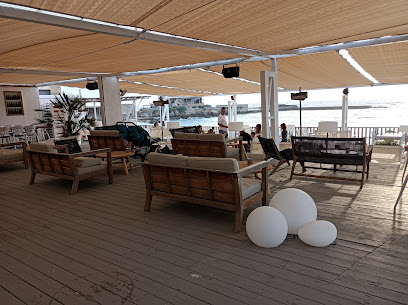
Limani Bistro
Experience exquisite Mediterranean dining at Limani Bistro, where fresh seafood meets breathtaking views in the heart of Caesarea.
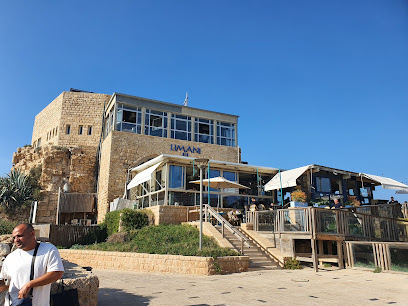
La Vita Bella
Discover the sweet and savory flavors of La Vita Bella in Caesarea, where artisanal ice cream meets delicious pizza in a historic setting.
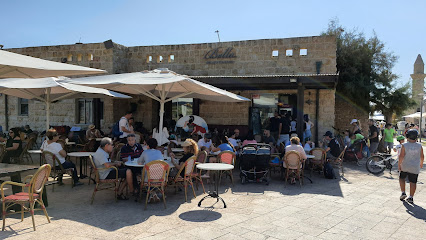
Local Phrases
-
- Helloשָׁלוֹם
[shalom] - Goodbyeלְהִתְרָאוֹת
[lehitra'ot] - Yesכֵּן
[ken] - Noלֹא
[lo] - Please/You're welcomeבִּבְקָשָׁה
[bevakasha] - Thank youתוֹדָה רַבָּה
[todah rabah] - Excuse me/Sorryסְלִיחָה
[slihah] - How are you?אֵיך אַתָּה?
[ayekh atah] - Fine. And you?טוֹב. וְאַתָּה?
[tov. ve'atah] - Do you speak English?הֲאַתָּה מְדַבֵּר אַנְגְלִית?
[ha'atah medaber anglit] - I don't understandאֲנִי לֹא מְבִין
[ani lo mevin]
- Helloשָׁלוֹם
-
- I'd like to see the menu, pleaseאָנִי רוֹצֶה לִרְאוֹת אֶת הַתַּפְרִיט, בְּבַקָּשָׁה
[ani rotseh lir'ot et hataprit, bevakasha] - I don't eat meatאֲנִי לֹא אוֹכֵל בָּשָׂר
[ani lo ochel basar] - Cheers!לְחַיִים!
[lechayim] - I would like to pay, pleaseאָנִי רוֹצֶה לְשַלֵם, בְּבַקָּשָׁה
[ani rotseh leshalem, bevakasha]
- I'd like to see the menu, pleaseאָנִי רוֹצֶה לִרְאוֹת אֶת הַתַּפְרִיט, בְּבַקָּשָׁה
-
- Help!עֶזְרָה!
[ezrah] - Go away!לֵךְ הָלוֹךְ!
[lekh halokh] - Call the Police!קְרָא לַמִּשְׁטָרָה!
[kra la'mishtara] - Call a doctor!קְרָא לַרוֹפֵא!
[kra la'rofe] - I'm lostאֲנִי אֹבֵד
[ani oved] - I'm illאֲנִי חוֹלֶה
[ani holeh]
- Help!עֶזְרָה!
-
- I'd like to buy...אָנִי רוֹצֶה לִקְנוֹת...
[ani rotseh liknot] - I'm just lookingאֲנִי רַק מְסַתֵכֵל
[ani rak masta'shel] - How much is it?כַּמָה עוֹלֶה זֶה?
[kama oleh ze] - That's too expensiveזֶה יָקָר מְאוֹד
[ze yakar me'od] - Can you lower the price?הֲאַתָּה יְכוֹל לְהוֹרִיד אֶת הַמְחִיר?
[ha'atah yechol lehorid et hamachir]
- I'd like to buy...אָנִי רוֹצֶה לִקְנוֹת...
-
- What time is it?כַּמָה הַשָּׁעָה?
[kama hasha'a] - It's one o'clockזֶה חָד
[ze chad] - Half past (10)חֲצִי (עֶשֶׂר)
[chatzi (eser)] - Morningבּוֹקֶר
[boker] - Afternoonצָהֳרַיִם
[tzohorayim] - Eveningעֶרֶב
[erev] - Yesterdayאֶתְמוֹל
[etmol] - Todayהַיוֹם
[hayom] - Tomorrowמָחָר
[makhara] - 1אֶחָד
[echad] - 2שְׁתַיִם
[shetayim] - 3שָׁלוֹשׁ
[shalosh] - 4אַרְבָּעָה
[arba'ah] - 5חֲמִשָּׁה
[chamishah] - 6שִׁשָּׁה
[shishah] - 7שִׁבְעָה
[shiv'ah] - 8שְׁמוֹנָה
[shmonah] - 9תִּשְׁעָה
[tish'ah] - 10עֶשֶׂר
[eser]
- What time is it?כַּמָה הַשָּׁעָה?
-
- Where's a/the...?אֵיפוֹ נַמְצֵא/ת...
[eifo namtze/t...] - What's the address?מַה הַכְתוֹבָה?
[mah hak'tovah] - Can you show me (on the map)?הֲאַתָּה יְכוֹל לְהַרְאוֹת לִי (עַל הַמַפָּה)?
[ha'atah yechol leharot li (al hama'pa)] - When's the next (bus)?מָתַי הָאִזְמֵל הַבָּא?
[matay ha'ezmel haba] - A ticket (to ....)כַּרְטִיס (לְ...)
[kartis (le...)]
- Where's a/the...?אֵיפוֹ נַמְצֵא/ת...
History of Caesarea Port
-
Caesarea was founded by King Herod the Great in 25 BCE and named in honor of Augustus Caesar. The port was one of the most significant Mediterranean harbors of its time, featuring advanced engineering with a massive breakwater that allowed ships to dock safely. This strategic location made Caesarea a pivotal center for trade and commerce in the ancient world.
-
During the Roman period, Caesarea flourished as a major city and administrative center. It became the capital of the Roman province of Judea and was known for its impressive architecture, including a large amphitheater, a Roman temple, and public baths. The city's port became a hub for maritime trade, connecting the eastern Mediterranean with the Roman Empire.
-
In the early centuries of Christianity, Caesarea became an important center for the faith. It was here that the Apostle Peter baptized the first Gentile convert, Cornelius, marking a significant moment in Christian history. The city later hosted the Council of Caesarea in 196, further establishing its relevance in early Christian affairs and pilgrimages.
-
During the Crusades in the 12th century, Caesarea was captured by Crusader forces and transformed into a fortified city. The port was fortified with walls and towers, illustrating the military importance of the location. This period saw a blend of cultures as interactions between Crusaders, Muslims, and local populations shaped the region's cultural landscape.
-
Under Ottoman rule in the 16th century, Caesarea began to decline as a major urban center. The port fell into disrepair, and the population decreased significantly. The Ottomans utilized the area for agricultural purposes, and remnants of the ancient city were gradually reclaimed by nature. However, the historical significance of the site remained recognized.
-
In the 20th century, extensive archaeological excavations brought the history of Caesarea to light. The work uncovered the remains of Herodian structures, Roman mosaics, and other artifacts, revealing the city's storied past. Today, the Caesarea National Park serves as a testament to its rich heritage, attracting visitors from around the world to explore its ancient ruins and learn about its historical significance.
Caesarea Port Essentials
-
Caesarea Port is easily accessible from various neighborhoods in Caesarea. If you're coming from the main Caesarea train station, take a short taxi ride or a local bus towards the port area. For those traveling from Tel Aviv or Haifa, you can catch a train to the Caesarea-Pardes Hanna station, followed by a taxi to the port. Alternatively, buses run from both cities to Caesarea. If you're driving, the port is located just off Route 2, with ample parking facilities available.
-
Caesarea Port is compact, and many attractions are within walking distance. For longer distances, local buses are available, connecting various parts of Caesarea. Bicycles can be rented from nearby shops, and cycling is a pleasant way to explore the scenic coastline. Taxis are also readily available for quicker transportation. The area is pedestrian-friendly, with beautiful paths along the beach and historical sites.
-
Caesarea Port is generally safe for tourists, but standard precautions should be taken. Avoid walking alone in poorly lit areas at night, and always be mindful of your belongings in crowded spaces. There are no specific high-crime areas targeting tourists, but it’s advisable to remain vigilant, especially in busy tourist spots.
-
In case of emergency, dial 100 for police, 101 for medical emergencies, or 102 for fire services. Local hospitals and clinics are available for medical assistance. It is recommended to have travel insurance that covers emergencies. For minor health issues, pharmacies in the area can provide over-the-counter medications.
-
Fashion: Do dress modestly when visiting religious sites. Don't wear beachwear away from the beach. Religion: Do respect local customs, especially during religious festivities. Public Transport: Do be polite and offer your seat to elderly passengers. Don't eat or drink on public transport. Greetings: Do greet locals with a smile and a handshake. Eating & Drinking: Do try local seafood and traditional dishes. Don't refuse food offered by locals, as it is considered rude.
-
To experience Caesarea Port like a local, visit the local markets for fresh seafood and artisan products. Engage with fishermen and shopkeepers; many are happy to share stories about the area. Don’t miss local events or festivals, often hosted at the port, which showcase regional culture. For a unique experience, take a guided tour of the ancient ruins and the beautiful harbor at sunset.
Nearby Cities to Caesarea Port
-
Things To Do in Hadera
-
Things To Do in Zikhron Ya'akov
-
Things To Do in Netanya
-
Things To Do in Haifa
-
Things To Do in Ra'anana
-
Things To Do in Raanana
-
Things To Do in Kfar Saba
-
Things To Do in Herzliya
-
Things To Do in Hod Hasharon
-
Things To Do in Nazareth
-
Things To Do in Tel Aviv
-
Things To Do in Ramat Gan
-
Things To Do in Akko
-
Things To Do in Acre
-
Things To Do in Jaffa










